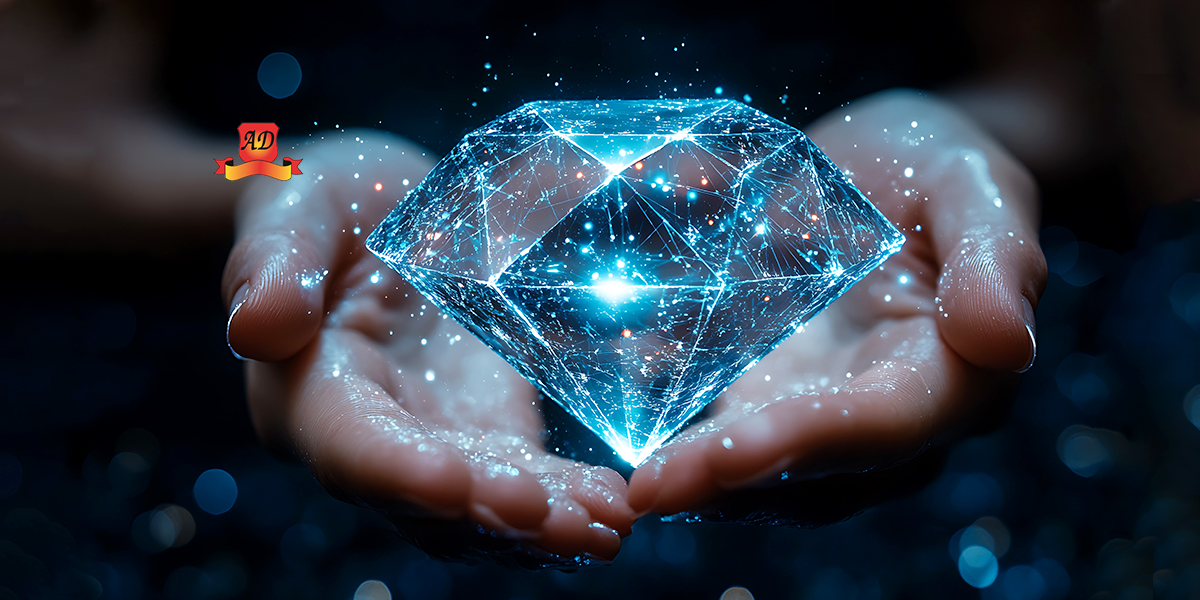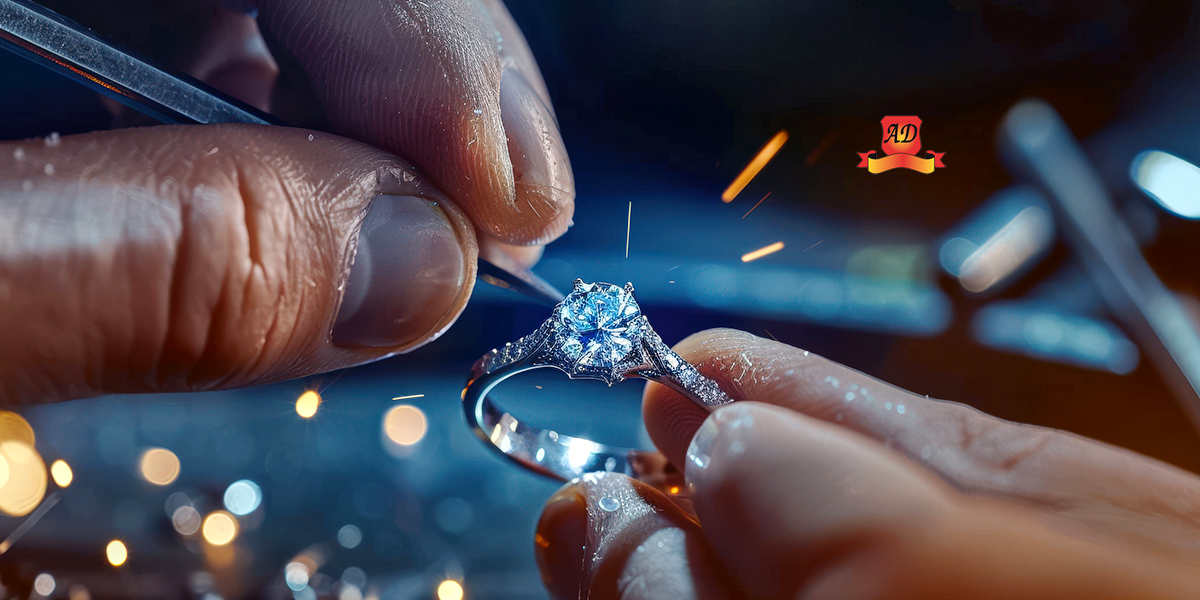Explore how AI revolutionizes diamond grading with precision and consistency. Learn its impact on quality assurance, reducing errors, and boosting buyer confidence.
The traditional grading system has been changed in recent years as the diamond industry embraced AI technologies to improve accuracy and uniformity in diamond grading. AI-driven grading systems provide a revolutionary method of quality control for certified diamond manufacturers, therefore lowering human mistakes and guaranteeing consistency across grading criteria. AI systems can examine a diamond's cut, clarity, color, and carat with hitherto unparalleled precision by using machine learning and sophisticated imagery. This invention not only accelerates the grading process for the beautiful diamonds but also gives producers consistent, statistically supported evaluations that strengthen client confidence.
This blog will explain the role of AI in diamond grading and its impact on quality assurance.
Understanding AI in Diamond Grading:
Through improved accuracy and consistency in quality evaluation, AI in diamond grading has transformed the diamond business. Traditionally, diamond grading relied on skilled craftsmen to evaluate factors like color, clarity, cut, and carat weight. But now, AI-powered systems examine these features with unparalleled accuracy, therefore removing human mistakes and biases. AI algorithms search and evaluate diamonds at a microscopic level using machine learning and computer vision, spotting minute features often missed by even experienced graders. This invention guarantees a better degree of transparency and confidence in the diamond manufacturing process in addition to accelerating grading speed. Using consistently graded diamonds, which simplify quality control, save re-grading expenses, and improve customer satisfaction, diamond manufacturers gain from AI. Including AI in diamond grading sets a new benchmark for quality control and helps firms committed to accuracy and innovation to build better reputations.
Benefits of AI in Diamond Grading:
For diamond producers, AI in diamond grading provides amazing advantages that precisely and fast transform quality assurance procedures. First of all, consistent, objective grading made possible by AI-powered systems helps to lower human mistakes and subjectivity. This guarantees a uniform grading system, therefore strengthening manufacturers' credibility and confidence in the diamond market. AI also simplifies grading processes so that producers may quickly meet market needs by effectively processing vast quantities of diamonds. AI algorithms also examine complex diamond features, and very accurate identification of inclusions, color, and clarity, so enhancing the general grading dependability. AI lowers running expenses by automating grading chores, therefore improving the profitability of diamond manufacturers. In the end, AI helps diamond makers provide precisely graded, high-quality diamonds, therefore meeting consumer expectations and industry standards.
Limitations of AI in Diamond Grading:
AI has many advantages in the diamond grading industry, but it is not without its limitations. AI systems can only be as good as their data. The grading results may be affected if there are biases within the dataset or if AI was trained only on a small range of diamonds. AI-driven systems may also struggle to grade rare or unique diamonds, which fall outside of the typical grading standard because they lack the nuanced judgment that a skilled human might have. The initial costs and ongoing maintenance of AI infrastructure are also barriers for smaller companies that want to adopt the technology. Human oversight is also needed to check the results, particularly when AI conclusions conflict with established grading standards. Despite these challenges and limitations, AI and machine-learning advancements will likely reduce them over time. This will enhance AI's versatility and reliability in the diamond industry.
The Future of Diamond Grading:
The inclusion of AI into diamond grading represents just the start of a much more significant shift in technology in the diamond industry. We can expect more precision as AI technology advances, and grading systems may be able to evaluate characteristics other than the 4Cs. AI could help consumers understand diamonds better by providing them with more customized and accessible reports. AI advancements could also lead to real-time solutions for grading diamonds, allowing consumers to get instant feedback about the quality of their diamonds at the point where they are being sold. In the future, diamond grading is likely to combine AI and human expertise to achieve a balance. This will allow for technology-driven efficiency and objectivity with human insight for unique or complex cases. The future will bring a transparent and customer-focused grading process driven by innovation and data.
AI's impact on diamond grading represents a significant shift in the quality control of diamonds, bringing enhanced accuracy, consistency, and efficiency. The benefits of AI-driven systems are more critical than their limitations. They can be a valuable asset to manufacturers, retailers, and consumers. The technology will improve diamond grading standards as it advances. It will also set new benchmarks in transparency and quality assurance. AI is a great way to improve operational excellence, but it also represents a commitment to the highest quality and reliability in the diamond industry.
For more information, contact Anita Diamonds- the best certified diamond dealer in Belgium.




